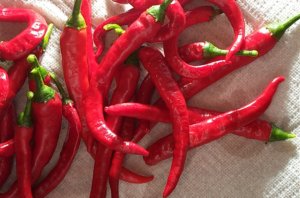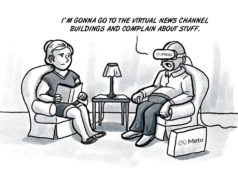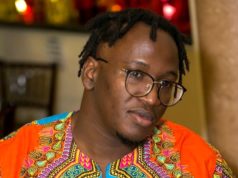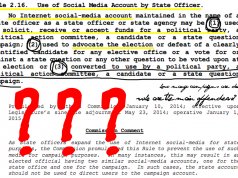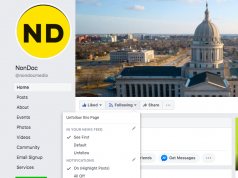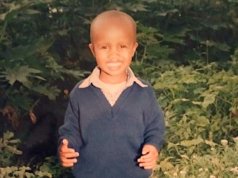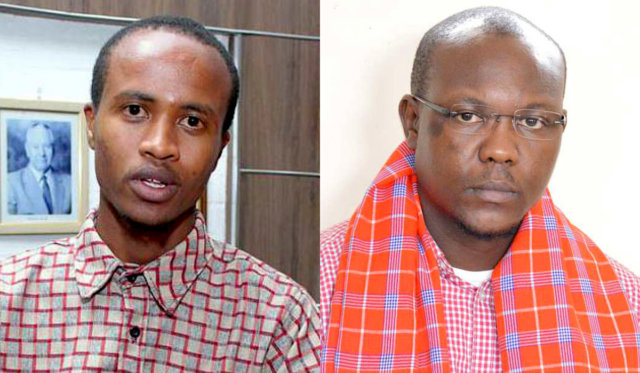

NAIROBI, Kenya — I laughed about it at first, brushing it off as another, if not bizarre, coincidence. But when a friend called me from Mombasa, she almost thought I wasn’t going to take it.
“Thank God you have picked up this call,” she said. “Damn, because that means you are not the one!”
I asked, confused: “I’m not the one? What do you mean?”
“My guess is that you haven’t watched the news,” she said. She told me to turn on the TV.
Last year, near the end of September, a businessman named Brian Kassaine was arrested and linked to a high-profile murder case in Nairobi. It was a gory crime, a bloody body left in a bathtub, like something I had been reading in books or seen in movies. But this wasn’t a book I could put down or a movie I could turn off. I was dragged into the mud for Kassaine’s alleged crime, because our names were the same, save for the extra “s” in his.
A week later I would sink into depression, fighting back tears with the Kenyan sleuthhounds at the Directorate of Criminal Investigations as I pleaded my case. A week later my empty stomach would rumble as my clammy and frail fingers wrote a self-recorded statement at Central Police Station.
High standards of irresponsible journalism
A gutter press initially ran the story, fastidious enough to reveal its high standards of irresponsible journalism. The gutter press pulled my photo from the internet and patched it to their hastily posted coverage of the story. The year before, I had published a book of fiction. It’s an achievement, given I was only in my third year at the Co-operative University of Kenya. Naturally, I promoted it. I talked about my debut all over social media. That, plus my trips to offer mentorship and coach rudiments of creative writing in high schools, put my name and face on the internet. So when people wanted to know who this “Brian Kasaine” was, they found me, because surprisingly, the suspect in custody had no online traces.
I would wake up to a mountain of text messages from people who had seen my face somewhere online being trashed. Incessant calls kept coming. It was an uncle, it was my mum, it was my brother, it was my lecturer, it was a friend. One person on Facebook managed to pull an old photo of me giving a speech at the Co-operative University of Kenya. He published it with the caption, “This kid is a murderer masquerading as a writer. What drives these little kids into lives of crime?”
Comments, likes and shares kept streaming in, and every word shredded my heart. When I wrote to explain the situation, he refused to pull down his post. He went on to say he knew me and that I was a nephew to a top-shot government official, which explained how I got a gun. My photo was shared on a Facebook page called “Kilimani Mums” and the caption was a clarion call to ladies to stay away from my kind — the light skinned.
My dreadful new-found fame
I was trolled, any sense of peace torpedoed. At work where I interned as a content creator, colleagues would ask for developments and how I was handling my dreadful new-found fame. I got weary and weak, tired of explaining myself, tired of calls and texts. I sank into depression and isolated myself. My worst experience was when I traveled to speak to students at my former high school. It had been planned that the session goes on at a plush hotel owned by a nominated member of Parliament, but he cancelled our booking and refunded the money when he saw my name on the program. That pulverized my heart and blew the ashes to the wind.
MORE FROM
BRIAN KASAINE
‘I fear pepper, and here’s why’ by Brian Kasaine
A long time friend held my hand, and we vowed to fight back. We went to media houses, hoping for some airtime to set the record straight. At one TV station in Nairobi, we never made it past the security barrier. They said I was being weak, that I was walking freely and they didn’t see the point in me fighting desperately to save my name. The bullying didn’t matter, they said, as long as I wasn’t the suspect in custody.
Another publication told me cyberbullying is illegal and advised that I go to the police. The police sent me to the sleuths at the Directorate of Criminal Investigations, who took time to listen and then sent me back to the police where I recorded a statement. They printed out screenshots of the trolling I was receiving. Then, in October, Sunday Nation reporter Elvis Ondieki ran my story under the headline Writer Bullied Online For Sharing Name With Suspect In Murder Case. That led to a call asking me to be a panelist on a televised discussion about cyberbullying. Taifa Leo, a Swahili newspaper, wrote my feature, and the trolling ebbed and then ended. But it left me broken, and maybe it’s the reason I took long to write this article.
Do not attack people online
For a long time, I only introduced myself as Brian, because everyone would have their faces puckered and look at me with doubt when I said my name was Brian Kasaine. I was even worried that would-be employers would trash my resume as soon as their minds processed my name, because the internet never forgets. The other Brian Kassaine was eventually exonerated and freed.
But I’ve left out the moments I cried, when I couldn’t sleep without sloshing whiskey into a glass and knocking it out with one swig, grimacing every time. Every morning, my face was plastered somewhere new, captioned with heart-ripping comments. One time, a group of people at a hotel recognized and stared at me and began speaking in whispers. It was terrifying. I recall feeling that I understood what goes through the minds of those who choose suicide.
I promise one day I will write a novel, build characters and put them in cliff-hangers at the center of the action. Through the characters, I will reveal everything and maybe make some cyberbully get their head out of their ass and see the damage they fuel. I hope to inspire someone somewhere going through cyberbullying — to let them know that they need to be strong and dawn will ultimately break. Sometimes you just have to be like the turtle: Stick your head out and keep going. We shouldn’t attack people online, especially when we don’t know what we are saying. And even if it’s a suspect, let’s not attack them. Last I checked, it’s innocent until proven guilty.









